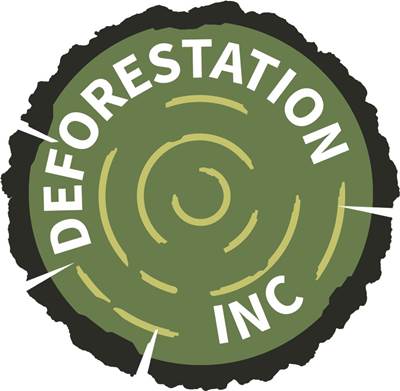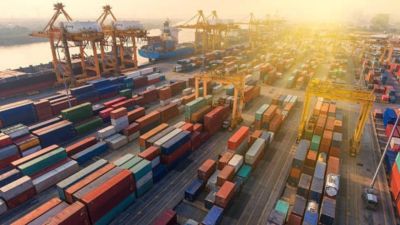Since the February 2021 coup in Myanmar when the democratically elected government was overthrown, the military junta has also taken control of Myanma Timber Enterprises (MTE), the state-owned company which has exclusive rights over the country’s precious timber and teak trade. The MTE has held an estimated dozen timber auctions since the coup and sales of this “conflict” wood, pro-democracy supporters allege, are a key revenue stream for the military regime.
Teak from Myanmar’s deciduous and evergreen forests is considered the most tensile and durable hardwood, resistant to water and termites. This prized wood is in demand for high-end furniture, veneer and ship-decking – much sought-after by the luxury yacht industry. Adding to its value, ironically, is Myanmar’s shrinking forest cover and depleting teak reserves. Global Forest Watch says the country, over the last two decades, has lost forest cover roughly the size of Switzerland.

What steps have been taken to check illegal harvesting of timber and teak from Myanmar?
In 2013, the European Union introduced the EU Timber Regulation (EUTR), which put the onus on timber merchants to do sufficient due diligence to disallow illegal timber from entering their markets. A year later, Myanmar itself banned the export of whole logs – the same year international NGO Environmental Investigation Agency (EIA) released data which showed that over 70% of the logs exported from Myanmar between 2000-2013 were illegally harvested.
Finally, months after the February 2021 military coup, both the EU and the US imposed sanctions on all timber trade with Myanmar and categorised MTE as a banned entity.
What has been the impact of these sanctions?
The EU consensus has been that since due diligence isn’t possible for all Myanmar timber and teak, any imports from Myanmar are a violation of the law. Also, as Forest Trends has analysed in its March 2022 report, since all MTE auctions are held in US currency, regardless of the nationality of the traders, all imports from Myanmar should, again, be considered a violation.
Despite this, the flow of teak originating from Myanmar continues into the US and several EU countries, as borne out by global trade data. And although direct trade into countries like Germany, Belgium and Netherlands has come down to negligible quantities, imports into countries like Italy, Croatia and Greece has increased. Plus, there have been numerous seizures of smuggled teak along Myanmar’s borders of China and India, traditionally the largest importers of its teak.
What are the conditions under which Indian traders still import teak from Myanmar?
The Indian Express spoke to traders located in Myanmar and India who say the conflict on the ground and frequent change of regulations by Myanmarese authorities pose twin challenges. Following the ban on export of whole logs, a new regulation came in for only teak in “sizes” to be exported. And since the beginning of this year, these “sizes”, too, have been reduced.
Story continues below this ad
As one teak importer, Vijay Patel of Nagpur’s Jai Timber said, “It is only the big traders who can survive now by importing teak from Myanmar. The Covid pandemic has hit the trade and freight charges have multiplied. But what is particularly troublesome is the fact that rules and regulations keep changing.”
What are the loopholes to be plugged to ensure that India is not looked upon as a leakage country?
On the question of continuing exports (as evident from trade data) from Myanmar to countries where sanctions are in place, timber traders said their buyers were free to do DNA testing on the hardwood for traceability of origins. However, this science is a nascent one even in the developed world and has not been introduced in India either by timber traders or by police forces, for instance, as evidence against smugglers who are frequently caught along the Indo-Myanmar border with stolen truck consignments.

The Indian Express noticed clear loopholes in regulations while teak was being exported to EU countries, which the traders claim was paid for before the 2021 coup. Trade data reveals some Indian companies simply put “Asia” in the column for origin of the wood, without specifying which country. Also, forest officials in Nagpur said that in transit passes they signed, traders wrote “imported” in the space for declaring where the teak was purchased from. These are loopholes that can be plugged.
 What has been the reaction of international statutory bodies like the Forestry Stewardship Council (FSC) on the continuing supply of teak from Myanmar to sanctioned countries?
What has been the reaction of international statutory bodies like the Forestry Stewardship Council (FSC) on the continuing supply of teak from Myanmar to sanctioned countries?
Story continues below this ad
The FSC was dispatched several questions by ICIJ and its partners for the “Deforestation Inc” investigation. On the issue of “conflict wood” from Myanmar, the FSC was asked how at least 10 FSC-certified companies, including one from India, had traded in teak from Myanmar despite the US/EU sanctions and were also displaying the FSC certification. The FSC international spokesperson said: “FSC is aware of certificate holders involvement in certified and non-certified teak products, and some certified teak products origin remains to be scrutinized.
Ineligible products sold as FSC certified with FSC claims on their sales documents, intentionally, are considered deliberate false claims that constitute fraud. FSC takes strict measures against those who commit fraud.”










































